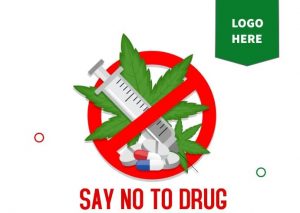Govt begins drive to make campuses drug-free

ARINDAM GANGULY, OP
Bhubaneswar: In a decisive move to combat the growing threat of drug abuse among students, the Higher Education department has issued a strong directive to all government and non-government aided colleges across the state, urging them to take proactive steps towards creating drug-free campuses. The directive, issued by State Nodal Officer-cum-Deputy Secretary Ramesh Chandra Behera comes at a time when concerns about increasing drug consumption among young people are mounting across Odisha. The department has recognised educational institutions as critical spaces where early intervention and awareness can shape healthier futures for students. “Educational institutions have a pivotal role in shaping responsible citizens. The current drug menace is a serious social threat, and we must act now,” the circular emphasised.
The government has outlined a comprehensive awareness strategy, which includes: Promotion of the MANAS portal and helpline (1933). Students and citizens can report drug use or seek help through the Narcotics Control Bureau’s MANAS (Mental Health and Normalcy Augmentation System) portal. Complaints can be lodged via the national helpline (1933), the Umang mobile app, or through email. Importantly, the identity of complainants will remain confidential. Colleges have been asked to raise awareness about this platform through seminars, posters, and digital campaigns. NSS-driven anti-drug pledge movement NSS (National Service Scheme) volunteers will lead the effort to encourage students and communities to take an e-pledge against drug use on the MyGov platform, reinforcing personal commitment to a drug-free life.
Student engagement activities. Institutions have been asked to organise sensitisation programmes such as debates, essay competitions, painting contests, street plays, and rallies to educate students on the dangers of substance abuse. Experts raise voices over campus drug culture Commenting on the initiative, anti-drug activist Muhammad Imran Ali, praised the government’s direction but warned of the alarming ground reality. “It’s a welcome step, but the situation is already very grim. Drug mafias are openly targeting young people in and around colleges and universities. Brown Sugar, Cocaine, and even LSD have been seized in recent months. Our campuses are not any more immune,” Ali stated. “For drug traffickers, students become possible buyers—and sometimes even as carriers. This is not just a health issue. It’s a criminal and moral crisis.
While awareness is crucial, we must ensure these guidelines are implemented effectively and backed by law enforcement,” he added. Amrit Pattojoshi, head of Psychiatry department at HiTech Medical College, said the popular belief that drugs like cannabis, LSD, or stimulants enhance creativity, focus, or confidence is a dangerous myth. While these substances may temporarily alter mood or perception, scientific evidence shows the effects are short-lived and often come with serious long-term consequences. “Long-term drug use harms core brain functions like memory, motivation, and decision-making, especially in young people whose brains are still developing,” Pattojoshi said. “Peer pressure, emotional struggles, and online glorification increase the risk—but with timely therapy and family support, recovery is possible,” he added.
News